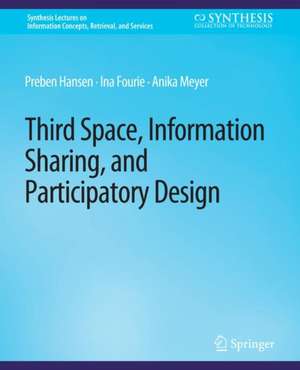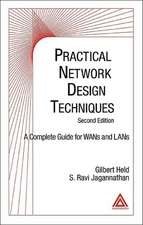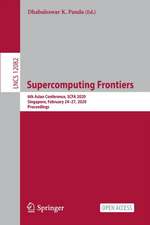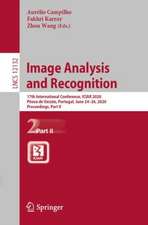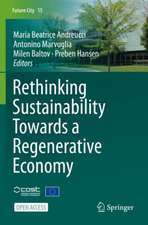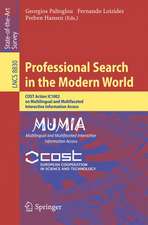Third Space, Information Sharing, and Participatory Design: Synthesis Lectures on Information Concepts, Retrieval, and Services
Autor Preben Hansen, Ina Fourie, Anika Meyeren Limba Engleză Paperback – 18 iun 2021
Din seria Synthesis Lectures on Information Concepts, Retrieval, and Services
- 20%
 Preț: 167.70 lei
Preț: 167.70 lei - 20%
 Preț: 301.96 lei
Preț: 301.96 lei - 20%
 Preț: 165.96 lei
Preț: 165.96 lei - 20%
 Preț: 278.44 lei
Preț: 278.44 lei - 20%
 Preț: 529.64 lei
Preț: 529.64 lei - 20%
 Preț: 276.80 lei
Preț: 276.80 lei - 20%
 Preț: 224.97 lei
Preț: 224.97 lei - 20%
 Preț: 165.44 lei
Preț: 165.44 lei - 20%
 Preț: 177.81 lei
Preț: 177.81 lei - 20%
 Preț: 358.95 lei
Preț: 358.95 lei - 20%
 Preț: 298.43 lei
Preț: 298.43 lei - 20%
 Preț: 237.93 lei
Preț: 237.93 lei - 20%
 Preț: 163.24 lei
Preț: 163.24 lei - 20%
 Preț: 199.72 lei
Preț: 199.72 lei - 20%
 Preț: 167.08 lei
Preț: 167.08 lei - 20%
 Preț: 135.99 lei
Preț: 135.99 lei - 20%
 Preț: 298.64 lei
Preț: 298.64 lei - 20%
 Preț: 176.97 lei
Preț: 176.97 lei - 20%
 Preț: 222.03 lei
Preț: 222.03 lei - 20%
 Preț: 328.79 lei
Preț: 328.79 lei - 20%
 Preț: 225.15 lei
Preț: 225.15 lei - 20%
 Preț: 199.72 lei
Preț: 199.72 lei - 20%
 Preț: 163.24 lei
Preț: 163.24 lei - 20%
 Preț: 304.96 lei
Preț: 304.96 lei - 20%
 Preț: 183.73 lei
Preț: 183.73 lei - 20%
 Preț: 224.18 lei
Preț: 224.18 lei - 20%
 Preț: 163.24 lei
Preț: 163.24 lei - 20%
 Preț: 167.08 lei
Preț: 167.08 lei - 20%
 Preț: 163.24 lei
Preț: 163.24 lei - 20%
 Preț: 227.62 lei
Preț: 227.62 lei - 20%
 Preț: 298.43 lei
Preț: 298.43 lei - 20%
 Preț: 177.62 lei
Preț: 177.62 lei - 20%
 Preț: 137.45 lei
Preț: 137.45 lei - 20%
 Preț: 163.24 lei
Preț: 163.24 lei - 20%
 Preț: 360.48 lei
Preț: 360.48 lei - 20%
 Preț: 177.47 lei
Preț: 177.47 lei - 20%
 Preț: 121.91 lei
Preț: 121.91 lei - 20%
 Preț: 199.72 lei
Preț: 199.72 lei - 20%
 Preț: 327.62 lei
Preț: 327.62 lei - 20%
 Preț: 223.67 lei
Preț: 223.67 lei - 20%
 Preț: 355.44 lei
Preț: 355.44 lei - 20%
 Preț: 289.61 lei
Preț: 289.61 lei - 20%
 Preț: 210.63 lei
Preț: 210.63 lei - 20%
 Preț: 163.24 lei
Preț: 163.24 lei - 20%
 Preț: 177.47 lei
Preț: 177.47 lei - 20%
 Preț: 358.20 lei
Preț: 358.20 lei - 20%
 Preț: 223.67 lei
Preț: 223.67 lei - 20%
 Preț: 270.99 lei
Preț: 270.99 lei
Preț: 356.40 lei
Preț vechi: 445.50 lei
-20% Nou
Puncte Express: 535
Preț estimativ în valută:
68.20€ • 74.31$ • 57.47£
68.20€ • 74.31$ • 57.47£
Carte tipărită la comandă
Livrare economică 23 aprilie-07 mai
Preluare comenzi: 021 569.72.76
Specificații
ISBN-13: 9783031011993
ISBN-10: 3031011996
Pagini: 134
Ilustrații: XXVII, 134 p.
Dimensiuni: 191 x 235 mm
Greutate: 0.3 kg
Editura: Springer International Publishing
Colecția Springer
Seria Synthesis Lectures on Information Concepts, Retrieval, and Services
Locul publicării:Cham, Switzerland
ISBN-10: 3031011996
Pagini: 134
Ilustrații: XXVII, 134 p.
Dimensiuni: 191 x 235 mm
Greutate: 0.3 kg
Editura: Springer International Publishing
Colecția Springer
Seria Synthesis Lectures on Information Concepts, Retrieval, and Services
Locul publicării:Cham, Switzerland
Cuprins
Preface.- Acknowledgments.-Abbreviations.- Introduction: Contemporary Challenges Faced in the Emerging Information Context.- Foundation and Components.- Participatory Design as an Approach for Participation.- Third Space.- Information Sharing and Other Information Activities.- Third Space as an Intersection Zone for Information Behavior Studies.- Conclusion and the Way Forward.- Appendix A: General Guideline for Conducting a Participatory Design Workshop Called Future Workshop/ Bibliography.- Authors' Biographies.
Notă biografică
Preben Hansen is a Docent and Associate Professor at the Department of Computer and Systems Sciences, Stockholm University, Sweden. His main research focus is in the intersection of Human– Computer Interaction, Interaction Design, and Information Behavior. Preben’s research focuses on the human in the center, interacting with the surroundings through various digital systems, services, objects and tools. His recent research deals with Gesture and distance-driven Interaction (with Dr Xiangdong LI) and Agile Research Methods (with Prof. Mike Twidale) and Collaborative Information Searching (with Dr Tina Du). He has published more than 120 academic articles/papers in journals and conferences and 3 edited books. He has served as chair at several ACM conferences like ACM CHIIR, ACM DIS, ACM/IEEE JCDL, TPDL and iConference. He has been a special issue editor for Journal of Information Science on Searching as Learning (2016) and special issue editor for IEEE Computer on Collaborative Information Seeking (2014).
Ina Fourie is a full professor and Head of Department of Information Science at the University of Pretoria. She is a rated South African researcher. Her main research focus is on information behavior, current awareness services, information literacy and auto-ethnography with special reference to cancer and palliative care and other existential contexts. She is a regular speaker and author in national and international contexts ranging from library and information science and education to healthcare. Ina serves on the editorial advisory boards of Library Hi Tech, Online Information Review, Information Research, and The Bottom Up. She was guest editor with Dr Heidi Julien of an Aslib Journal of Information Management special issue on Innovative Methods in Health Information Behavior Research (vol. 71 [6]: 693–702). Ina is currently Vice Chair of the ISIC (Information Seeking in Context) Steering Committee and part of the ASIS&T (Association for Information Science and Technology) Executive Board as Treasurer. She has published more than 130 articles, books and conference papers and has presented in more than 16 countries.
Anika Meyer is a Lecturer in the Department of Information Science, University of Pretoria. She completed her Master studies in 2016, titled: Information behavior in academic spaces of creativity: a building science pseudo-makerspace. She is currently enrolled for her doctoral studies at the Department of Information Science, University of Pretoria, titled: Information sharing in participatory design of a virtual academic creative space. Her research interests include creativity, collaborative information seeking (CIS), knowledge management, guided inquiry, third space, in formation literacy, information behavior and makerspaces—specifically the construction of these creative spaces through universal design, holistic ergonomics and participatory design. She has presented at international conferences (e.g., ISIC and EAHIL) and is a member of the ASIS&T African Chapter.
